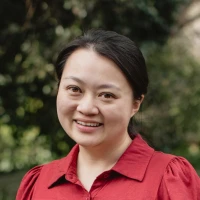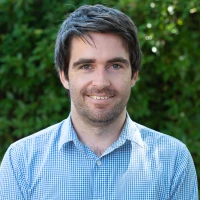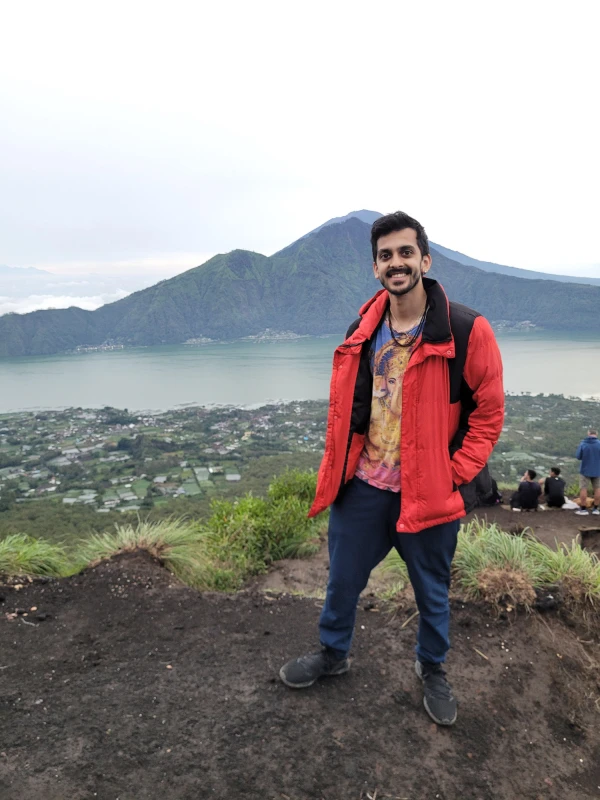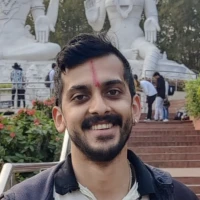 Top Tips for Thriving in Medical School
Top Tips for Thriving in Medical School
 Dr Hannah Pham
Dr Hannah Pham


Dr Addison Davis is Discipline Editor for Rural and Remote Medicine, Occupational and Environmental Medicine, and Emergency Medicine. In this blog post, Dr Davis shares with us his clinical experiences in rural generalism by taking us through his workday.
7:00 am – I start my day with a peaceful stroll alongside my wife and our two golden retrievers, making our way to the local café. It’s not just a chance to get some fresh air, but also to engage with the community. As we chat with the barista whilst awaiting for the morning's coffees, we reminisce about how I helped deliver her child two years ago — a small-town moment that reminds me how deeply intertwined my role is with the lives of those I help care for.
8:30 am – Handover from the nurses at the local hospital begins. A box of fresh pastries from the nearby patisserie sits in the tea room, setting the tone for a day of both challenge and camaraderie. On the ward round, I meet some of my regular patients. Their smiles are as familiar as the conversations about the town’s latest developments and gossip. Amidst the clinical work, there’s a deep personal connection — one where I’m not just a doctor but a part of their lives. I schedule a family meeting for one patient to ensure everyone is on the same page about their recovery, emphasizing the importance of holistic care.
11:00 am – A quick walk to the nearby aged care home is next on my agenda. The nurses called earlier, concerned about a resident who felt unwell during the night. When I arrive, I find her happily singing, though she remains unwell. We talk, and together with her family, we decide to focus on comfort care. Her joy, despite her illness, is a humbling reminder of the resilience of the human spirit. I make sure her medications are sorted and brief the staff before I leave, but not before she sings me another tune.
12:00 pm – I head to the clinic for a busy afternoon of on-the-day patients:
Patient 1: A 50-year-old man comes in with a painful abscess that needs to be drained. I handle the procedure, give him a script, dress the wound and schedule a follow-up for tomorrow.
Patient 2: An 8-year-old with worsening asthma had a rough night, but his parents followed the action plan we had developed. We tweak his medications and reassure the family. He leaves the clinic with stickers in hand and a smile on his face.
Patient 3: A 78-year-old gentleman who shouts about not being able to hear. His ears are packed with wax, which I clear delivering instant relief. The moment he regains his hearing, his demeanour softens, and we both laugh as he leaves, shaking my hand.
1:00 pm – Lunch is a social affair. My colleagues and I gather in the tea room to enjoy some downtime. We chat about the recent snowfall and the best runs for skiing, sharing laughs before we dive back into work.
2:00 pm – It’s back to patient care:
Patient 4: An 82-year-old I discharged last week after a bout of heart failure comes in. To my surprise, they’ve been out mowing the lawn like nothing ever happened — a testament to their resilience!
Patient 5: A 10-year-old soccer player arrives with a sore wrist from a fall. An immediate x-ray at the local hospital confirms a buckle fracture. I apply a cast and upon his request I sign it which he proudly shows off to the reception staff on his way home.
Patient 6: A 34-year-old man presents with a foreign body in his eye after grinding metal without safety glasses. After removing the metal, I gently remind him to wear his protective gear next time, both knowing that this wasn’t the first nor will it be the last time he’s had this issue.
3:00 pm – An urgent call from the hospital breaks the rhythm of my clinic day: an emergency caesarean section is required for fetal distress and maternal fever. My patients are rescheduled as I rush over to the hospital. After the baby is delivered, I provide neonatal life support — thankfully, the baby responds well and recovers quickly, but not before my heart races alongside the newborn’s pulse.
3:45 pm – As I settle down from the delivery, the midwife calls again — the newborn is now hypothermic and hypoglycemic. After assessing the baby, I consult with the neonatal retrieval team. Together, we initiate treatment for suspected sepsis, and I insert an IV to administer antibiotics and fluid. Once stabilized, I arrange for the mother and baby to be transferred to a larger hospital. It’s moments like this that make rural medicine both exhilarating and rewarding.
5:00 pm – Before heading home, I stop by the nursing home to check on my patient from this morning. Her pain is under control, and she greets me with more singing. I hold her hand and share a quiet moment, appreciating the simplicity and depth of palliative care. I update her son and promise to visit again tomorrow.
5:30 pm – My day ends where it began, with the happy tails of my golden retrievers greeting me at the door. Over dinner, my wife and I debrief about our day, sharing the highs, lows, and unexpected turns that come with life in a rural community.
Life as a rural generalist is far from routine, and that’s what makes it so special. One minute, you’re handling a routine clinic visit; the next, you’re responding to an emergency caesarean section or managing a patient in palliative care. The scope is wide — encompassing general practice, emergency medicine, palliative care, paediatrics, aged care, obstetrics, and even neonatal care. Every day brings variety, and that variety keeps you sharp, adaptable, and deeply connected to your patients and their families.
In rural medicine, you’re not just a doctor; you’re part of the fabric of the community. You care for people at every stage of life — from delivering babies to comforting patients in their final days. You build relationships that span generations, offering continuity of care that’s rare in other settings. The challenges are real, but so are the rewards. Every decision, every action, and every connection you make has a tangible impact on your community.
Being a rural generalist offers a career full of purpose and meaning, allowing you to make a difference in ways that extend far beyond the clinic or hospital walls.
Addison is a Rural Generalist, Senior Lecturer in Medicine and a Senior Editor at eMedici. He has a strong passion for medical education and clinical teaching. Addison completed his medical degree at the University of Melbourne in 2017, followed by hospital training in northeast Victoria and advanced skills training in Paediatrics. He is a Fellow of the Royal Australian College of General Practitioners with advanced rural generalist recognition.
Outside of medicine, Addison enjoys spending time with his family and two golden retrievers, playing hockey, and snowboarding in the winter months.
 Top Tips for Thriving in Medical School
Top Tips for Thriving in Medical School
 Dr Hannah Pham
Dr Hannah Pham
 Setting Yourself Up for Success in Medical School
Setting Yourself Up for Success in Medical School
 Darren Tan
Darren Tan
 One Study, Global Impact: The Far-Reaching Power of Health & Medical Research
One Study, Global Impact: The Far-Reaching Power of Health & Medical Research
 Dr Karan Varshney
Dr Karan Varshney
 Life Lessons in Medicine: What To Do When You Feel Like Everyone Else Has It All Figured Out
Life Lessons in Medicine: What To Do When You Feel Like Everyone Else Has It All Figured Out
 Dr Karanjot Lall
Dr Karanjot Lall